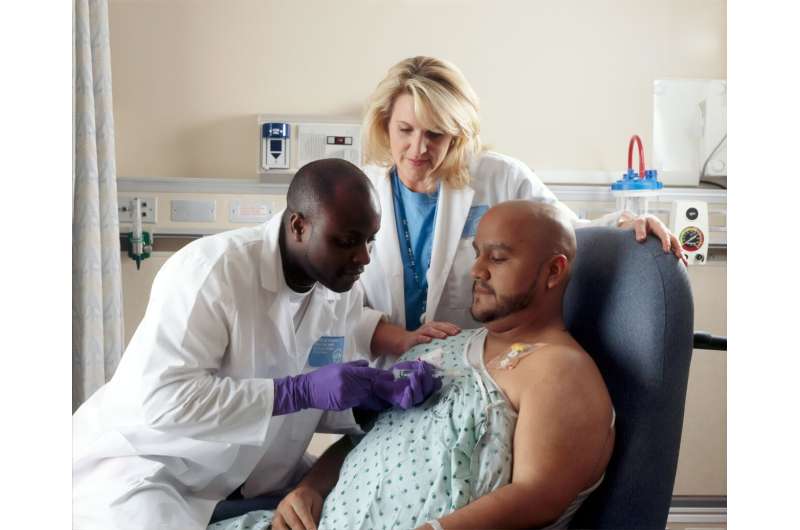
Everyone with cancer experiences it differently and all emotions are valid and important, regardless of the mix or intensity. Shawna Ehlers, Ph.D., a Mayo Clinic psychologist and psycho-oncology expert, helps patients cope with the burden of their cancer diagnosis. That includes dispelling myths that stress in their lives caused their cancer or that depression must be suffered through during cancer treatment.
“If I had one thing that I could tell all cancer patients, it would be that stress does not cause cancer. That is a common myth that causes a lot of unnecessary worry and guilt,” Dr. Ehlers says. “People think if only they had not taken that stressful job, or they would have left that stressful marriage, they wouldn’t have cancer. One of the most rewarding parts of my job is to say, ‘That’s absolutely not true. Stress did not cause your cancer. There’s no scientific evidence to prove that.'”
Stress can wreak havoc in many ways. The body’s natural stress response, designed to protect it from perceived threats, can stay on when it shouldn’t. This can happen for many reasons, including trauma and other stressors. The long-term activation of the stress response system and the overexposure to stress hormones can disrupt almost all of the body’s processes, but it can’t cause cancer, Dr. Ehlers says.
Stress can influence a patient’s recovery from cancer, she adds.
“Stress has been associated with cancer progression once somebody is diagnosed,” Dr. Ehlers says. “That’s why managing stress is really important. That doesn’t mean avoiding stress at all costs, it means making sure every day there’s some downtime where your physiology gets to calm down.”
Along with working with a mental health professional, balance and acceptance are key to managing stress.
“It’s important to separate the controllable factors from the uncontrollable ones. When someone is diagnosed with cancer, they can feel shocked, lost and overwhelmed—like their whole life is out of control,” she says. “But after they have time to think about it, they realize there are things that they can control.”
Another myth is that depression must be tolerated, Dr. Ehlers says.
It is normal to be stressed, anxious and sad, Dr. Ehlers says, adding that these feelings often dissipate. When they don’t, it is important to talk to a health care professional and seek support. Depression looks different for everyone, and it’s not always easy to recognize. The sooner it is addressed, the sooner patients can focus energy on their cancer recovery and healing.
“This is a normal part of cancer—it’s even expected—and it’s treatable, so it’s not something that you have to sit and suffer with alone,” Dr. Ehlers says.
It is healthy to talk with others about a cancer diagnosis, but not always easy, she adds. While some people may lean on friends and family, others may try to cope by avoiding the subject, and that can have the opposite effect, taking energy that could be used for healing, Dr. Ehlers says.
“One of the things we work on with patients is letting go of that avoidance, so you’re actually talking about the full experience of cancer,” she says. “That processing of emotions helps people manage stress and feel less anxious and depressed in the long run.”
It is also healthy to set boundaries. Talking to a mental health professional, family and close friends about cancer can help, but answering questions from acquaintances and strangers may be stressful, Dr. Ehlers says. When a conversation becomes uncomfortable, redirection can help steer the conversation back to the other person, she says. Phrases that might help include:
• “I appreciate you asking about me. I’d really like to hear about …”
• “Thanks for letting me catch you up. What about that new car/hobby/job?”
• “Thanks for asking about me. So how is your family/spouse/child?”
Source: Read Full Article
